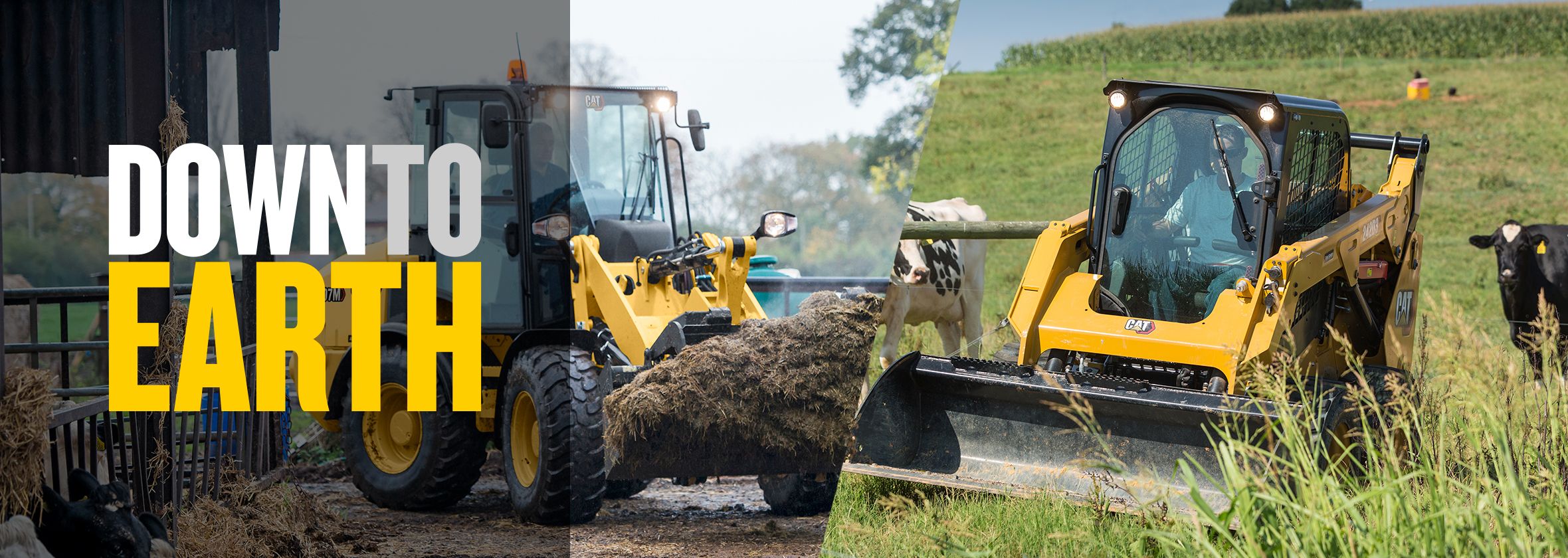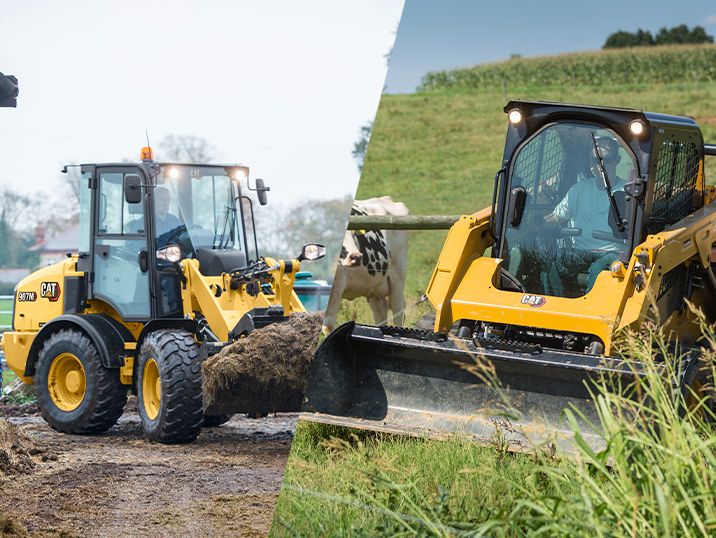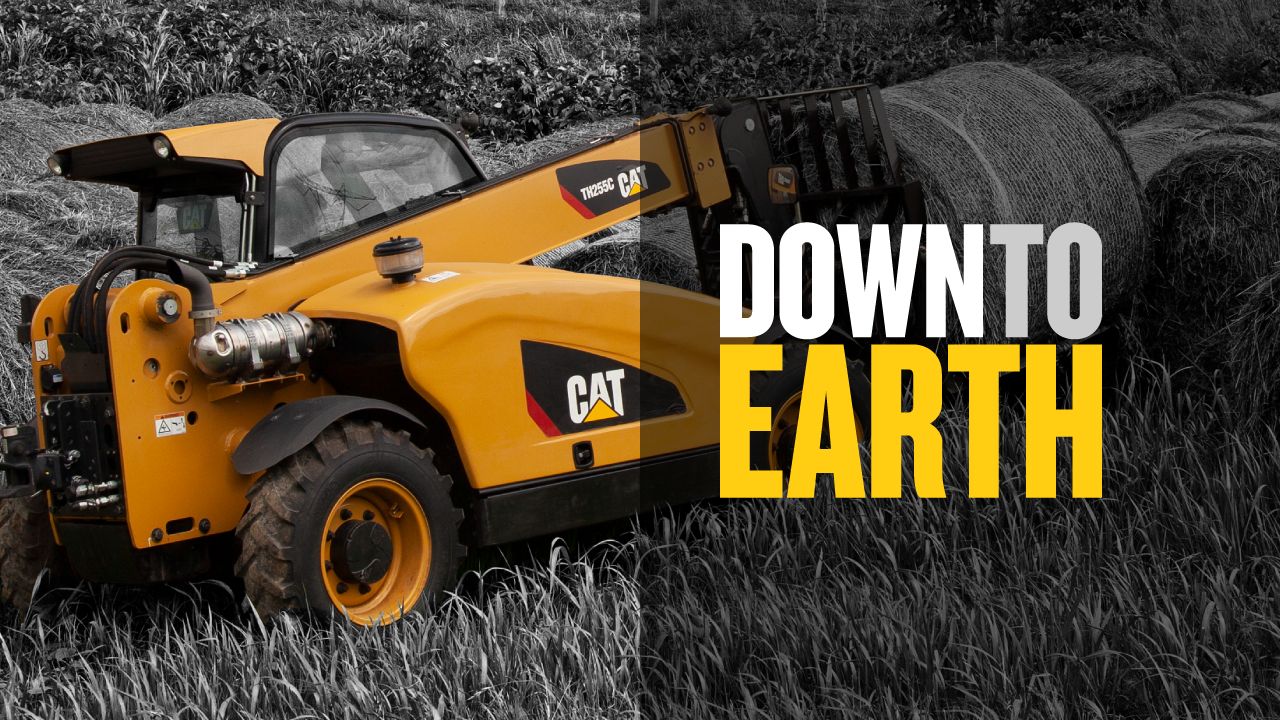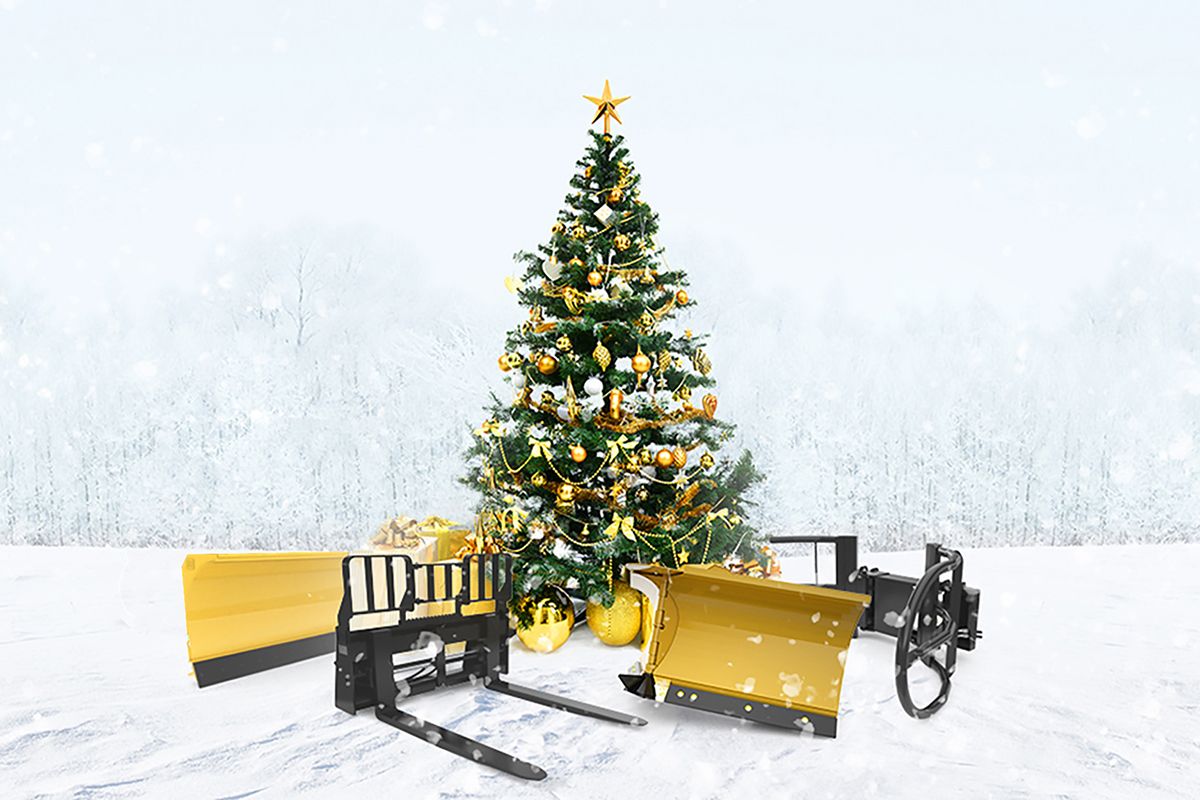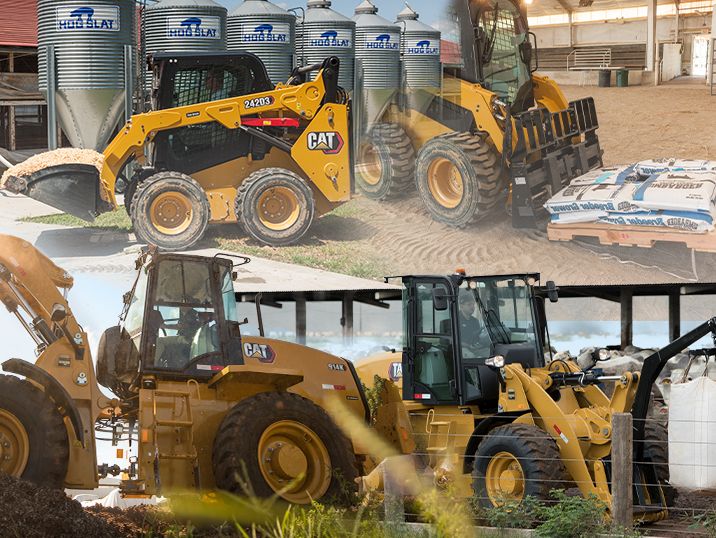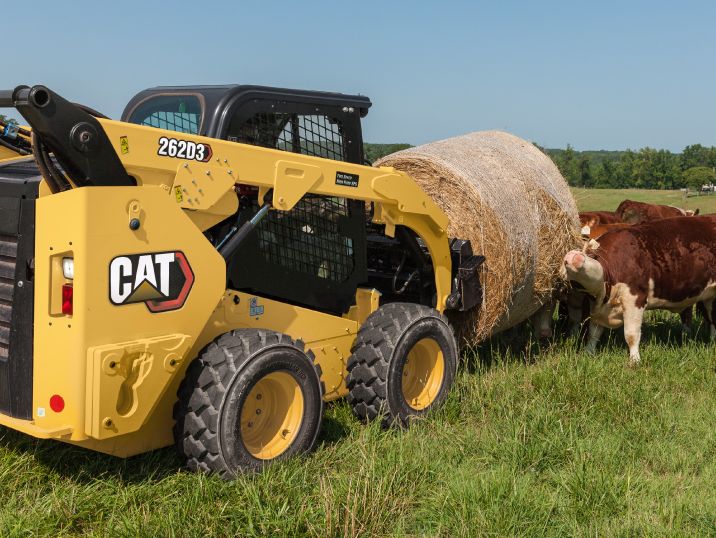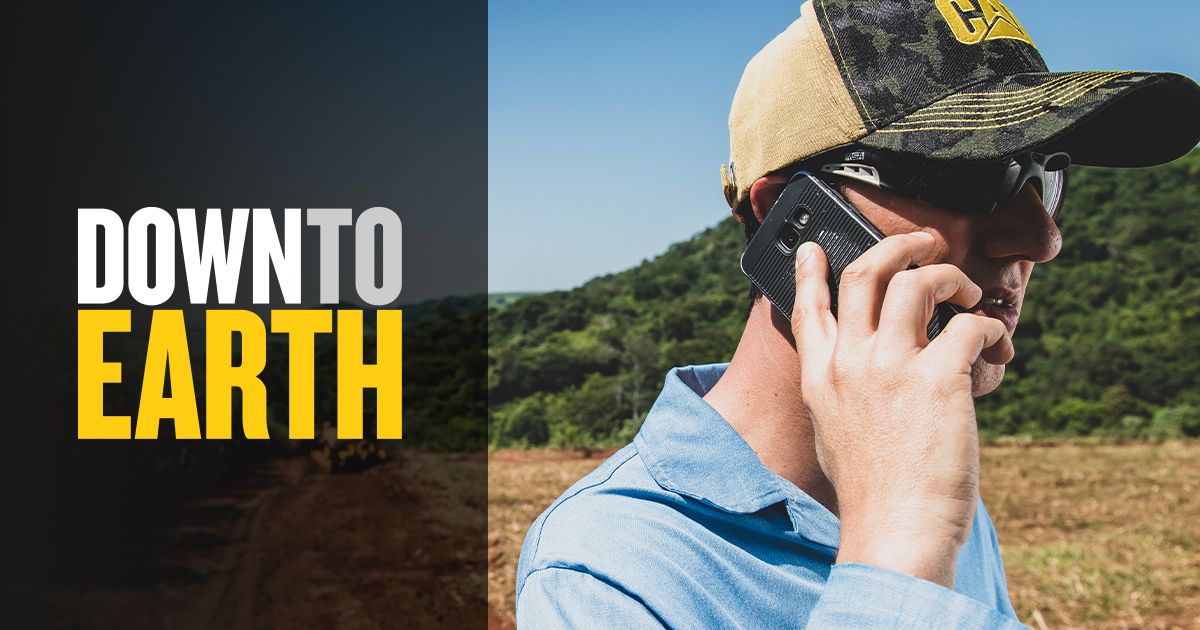

Sign In
Welcome! Sign In to personalize your Cat.com experience
If you already have an existing account with another Cat App, you can use the same account to sign in here
Register Now
One Account. All of Cat.
Your Caterpillar account is the single account you use to log in to select services and applications we offer. Shop for parts and machines online, manage your fleet, go mobile, and more.
Account Information
Site Settings
Security
How to Choose Between a Skid Steer or Compact Wheel Loader for Your Farm
Both skid steers and compact wheel loaders have a lot to offer to farming operations. Use this guide to choose the right wheeled machine for your next piece of farm equipment.
Ben Rice | Agriculture Industry Representative
If you’re considering adding a wheeled machine to your farm fleet, you may be stuck on what size or what type of equipment is best for your operation. There are several differences, and many similarities, between skid steers and compact wheel loaders. Here are a few questions to help you make the right equipment decisions for your farm.

How Big is Your Working Space?
Will you be working in wide open spaces, or will you primarily be working in pens and aisles where you need to be able to turn around easily?
Start with your space dimensions and compare machine specs to determine which model is the best fit for your farm. If you can’t operate or turn a compact wheel loader within your workin space, then you need to look at a skid steer loader with its zero-turn capability.
What Kind of Work Are You Doing?
If you find that either machine would fit within your working space, then let’s move on to determining what you’ll be doing with your equipment. For example, if you’ll be using a variety of hydromechanical tools you may want to consider a skid steer loader. If you’ll mostly be using buckets and forks, then a compact wheel loader is a great choice.
A skid steer may give you more versatility for a wide variety of farm tasks. These machines offer more hydraulic power and more control, resulting in better performance with more complex attachments, whether it’s using an auger for fence posts or leveraging Smart Attachments around your property.
Compact wheel loaders offer higher capacity and higher travel speed than skid steers. So if you find that you’ll need to lift and/or transport larger loads, or if you have a lot of acreage to traverse in the machine, you may find the compact wheel loader to be a better choice.
What Materials Are You Handling?
Bucket shapes are different for skid steer loaders and compact wheel loaders because they’re optimized for each machine’s capability. If you compare the bucket capacity on a skid steer to a compact wheel loader, in general you'll find that you can increase your load carrying capacity by up to 70% with a compact wheel loader.
Another thing to consider with material type is safety. On the farm, your tasks can get slippery and even unpleasant. When you step out of a machine, what are you potentially stepping into? Think about your preferences for safely entering and exiting a piece of equipment every day.
How High Do You Need To Load?
Remember to take lift height into consideration if you’ll be loading materials frequently. Feed bags, fertilizer, mixing feed, loading hoppers, even clearing snow around the barns – what are the heights and bucket capacities you estimate you’ll need for these tasks? A compact wheel loader will have an advantage on lift height as well as visibility. The higher seating position of a compact wheel loader gives you a different perspective than the enclosed cab of a skid steer loader.
What is Total Cost of Ownership?
The great news is that maintenance costs for skid steers and compact wheel loaders are about the same. Both are typically utility based machine. Cat® skid steer and compact wheel loaders run the same engine and have the same oil change intervals.
At Caterpillar, we focus on service access, long life coolant, and long life hydraulic oil to give our customers the lowest maintenance cost and longest service intervals possible, because we know you have work to get done – day in and day out.
Once you work through these questions and considerations, contact your local Cat dealer to see each piece of equipment up close and put them to the test with a demo. Either way you go, you’ll end up with unmatched dealer support and a machine that’s built for the work you do on the farm.

Ben Rice
Agriculture Industry Representative
Having spent his formative years on a tobacco farm, Ben Rice went on in the agriculture field to earn degrees in Agriculture Business Management and Agriculture Science from North Carolina State University. Rice now brings his invaluable expertise to Caterpillar as an industry sales and service representative.
RELATED ARTICLES
You’re here to get ideas to grow your business. Read on for machine insights and expert tips and tricks to get more out of every job.
-
2022 Agriculture Holiday Gift Guide
Whether you’re shopping for you, your farm, or your family, our 2022 agriculture holiday gift guide has you covered.
Learn More -
Compact Wheel Loaders vs. Skid Steers on the Farm
While compact wheel loaders, skid steers and track loaders are all versatile farm machinery, which is best for your operations? We see how they compare.
Learn More -
Skid Steer Loaders and Track Loaders vs. Tractors: Which is Best For Your Farm?
A comparison of skid steer loaders and tractors on the farm, and when to use these farming machines for various applications.
Learn More -
Promoting Your Farming Business on Social Media
Promoting your farming business on social media is a great way to reach new people as we spend more time online.
Learn More
